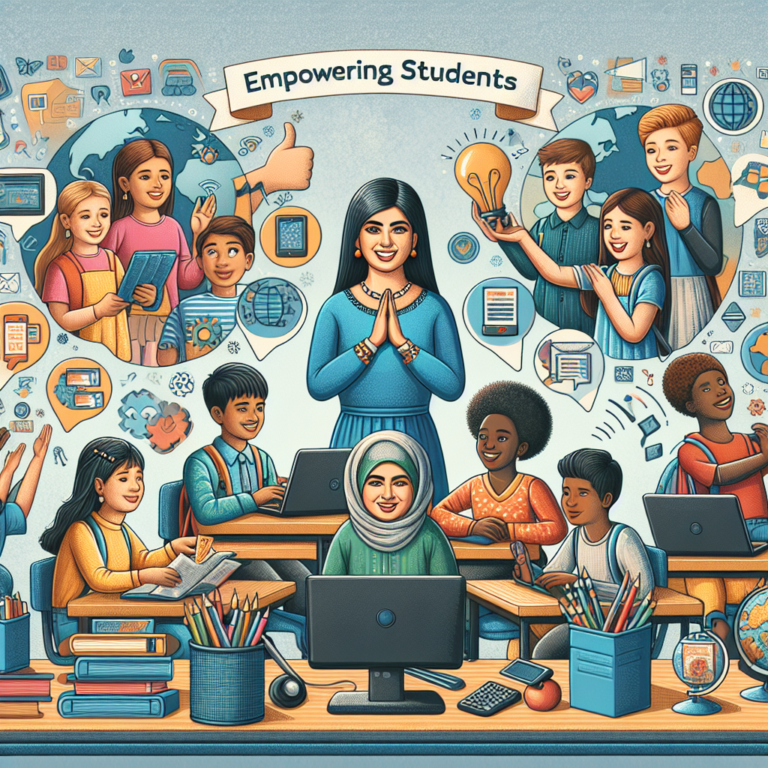Spelling Struggles: How Learning Disabilities Affect Literacy Development
Introduction
In a world dominated by written communication, the ability to spell accurately can open doors to numerous opportunities. Unfortunately, for many children grappling with learning disabilities, spelling poses a daunting challenge that can impact their literacy development and overall academic performance. Spelling Struggles: How Learning Disabilities Affect Literacy Development delves into the complex relationship between these two critical areas, shedding light on the difficulties faced by learners and highlighting effective strategies for support.
Through this in-depth exploration, we aim to uncover the hidden struggles behind spelling difficulties and empower educators, parents, and learners alike. As we journey through the realms of literacy, learning disabilities, and spelling, we invite you to consider the importance of understanding diverse learning needs to foster a more inclusive educational environment.
Understanding Learning Disabilities and Literacy
What Are Learning Disabilities?
Learning disabilities (LD) encompass a range of neurological disorders that affect the brain’s ability to process, retain, or express information. Common forms of learning disabilities include dyslexia, dysgraphia, and dyscalculia. These conditions can manifest in various ways, particularly impacting areas such as reading, writing, and mathematics.
Dyslexia and Spelling Struggles
Dyslexia, a specific learning disability in reading, is one of the most prevalent forms of learning disabilities affecting literacy development. One of the hallmark signs of dyslexia is difficulty with spelling and phonological processing—the ability to recognize and manipulate sounds in spoken language.
Case Study 1: Timmy’s Journey
Timmy, a seven-year-old diagnosed with dyslexia, often confuses letters when writing. For instance, he might write "b" instead of "d," or "was" instead of "saw." Despite performing well in oral discussions, his spelling struggles hinder his confidence and participation in written assignments. Understanding Timmy’s experience illustrates how specific learning disabilities can directly affect literacy and self-esteem.
The Link Between Spelling and Literacy Development
Spelling is an essential component of literacy, and it evolves through various interconnected processes: phonemic awareness, vocabulary acquisition, and writing skills. When learners experience spelling struggles, it can lead to substantial barriers in reading comprehension, written expression, and overall academic success.
Phonemic Awareness and Its Importance
Phonemic awareness refers to the knowledge of sounds in spoken words, a skill critical for decoding and spelling. Children who excel in phonemic awareness typically progress well in their literacy development. Conversely, those with learning disabilities may find this foundational skill challenging.
Chart 1: Phonemic Awareness Skills Development
| Age Range | Skill Development | Impact on Literacy |
|---|---|---|
| 4-5 years | Recognizing and producing rhymes | Basic reading readiness |
| 5-6 years | Segmenting sounds in words | Improved spelling skills |
| 6-7 years | Blending sounds into words | Enhanced reading fluency |
| 7+ years | Manipulating sounds in complex words | Mastery of spelling conventions |
The above chart illustrates how phonemic awareness skills develop over time, emphasizing the necessary skills that support literacy development. Understanding this relationship is crucial for addressing spelling struggles in learners with learning disabilities.
Challenges Associated with Spelling Struggles
Impacts on Academic Performance
Spelling struggles can profoundly impact a child’s performance in school. As assignments pile up, children with learning disabilities might find themselves unable to express their knowledge effectively, leading to frustration and disengagement from learning.
Case Study 2: Sarah’s Struggle
Sarah, an eighth grader with a diagnosis of dysgraphia, experiences immense difficulty in writing assignments. Her thoughts are often well-formed, but the physical act of writing overwhelms her. This struggle manifests in poor spelling, which subsequently leads to lower grades and feelings of inadequacy. Sarah’s experiences highlight how spelling difficulties can create a cycle of academic challenges, impacting confidence and motivation.
Emotional and Psychological Effects
The emotional toll of struggling with spelling can be significant. Children may internalize their challenges, developing feelings of inadequacy or anxiety regarding their writing skills.
Table 1: Emotional Responses to Spelling Struggles
| Characteristic | Comorbid Issues |
|---|---|
| Low self-esteem | Anxiety and depression |
| Frustration | Behavioral issues |
| Withdrawal from classes | Reduced academic engagement |
This table outlines common emotional responses to spelling struggles and the potential comorbid issues that may arise. It is crucial to address these emotional components to support learners effectively.
Effective Strategies to Support Literacy Development
Tailored Instructional Approaches
Multisensory Learning
Multisensory instruction integrates visual, auditory, and tactile activities, enabling learners with spelling struggles to absorb information more effectively. Techniques such as phonics-based games, letter tiles, and word mapping can reinforce spelling skills and boost confidence.
Case Study 3: Jake’s Transformation
Jake, diagnosed with dyslexia, struggled with traditional spelling instruction. However, through multisensory techniques, such as tracing letters in sand while saying the sounds aloud, he experienced significant improvements. His newfound enthusiasm for engaging activities nurtured a more positive relationship with spelling and literacy overall.
Utilizing Technology
The digital age offers numerous tools designed to aid learners with spelling difficulties. Spell-checkers, dictation software, and interactive games can provide vital assistance without stigmatizing the learner.
Amazing Online Resources
- Learning Ally: Provides audiobooks for students with learning disabilities.
- Starfall: Engaging activities focusing on phonics and spelling.
- GraphoGame: A free, phonics-based game that helps develop spelling skills through multisensory techniques.
Building a Supportive Learning Environment
Collaboration among educators, parents, and specialists is essential in creating a nurturing environment that addresses spelling struggles head-on. Regular communication about challenges and progress can promote consistency and support outside the classroom.
Table 2: Components of a Supportive Learning Environment
| Component | Description |
|---|---|
| Communication | Regular updates between parents and educators |
| Positive Reinforcement | Celebrate small successes |
| Inclusive Activities | Pair learners with peers for collaborative work |
This table offers a framework for developing a supportive educational atmosphere where learners can thrive despite their spelling challenges.
Conclusion
Spelling struggles rooted in learning disabilities can create a ripple effect that extends far beyond the classroom. Delving into the complexities of literacy development, we can better understand the unique challenges faced by students like Timmy, Sarah, and Jake. By leveraging tailored instructional approaches, technology, and a supportive environment, we can foster growth, confidence, and academic success.
Understanding Spelling Struggles: How Learning Disabilities Affect Literacy Development is the first step toward empowering learners and ensuring that no child is left behind. As we move forward, let us embrace inclusion and celebrate the diverse capabilities of all students.
FAQs
1. What are the most common learning disabilities that affect spelling?
The most common learning disabilities that impact spelling include dyslexia and dysgraphia. Dyslexia affects reading and spelling through difficulties with phonological processing, while dysgraphia impairs the ability to write coherently, often leading to poor spelling.
2. How can parents support their children with spelling struggles at home?
Parents can support their children by engaging them in multisensory activities, such as using letter tiles or spelling games. It’s also helpful to establish a routine that includes regular spelling practice, creating a positive and low-pressure environment for learning.
3. Are there specific teaching methods recommended for students with spelling difficulties?
Yes! Multisensory instruction, structured literacy approaches, and individualized educational programs (IEPs) are recommended for supporting students with spelling challenges. These methods cater to individual learning styles and provide targeted support to enhance spelling and literacy skills.
4. Can technology help improve spelling skills?
Absolutely. Various educational apps and tools can assist learners in practicing spelling in engaging and interactive ways. Spell-checkers and speech recognition software can also alleviate some of the burden associated with writing and spelling tasks.
5. What steps should educators take to address spelling struggles in the classroom?
Educators should first assess students to identify their unique needs. They can implement differentiated instruction, provide accommodations (like extra time), and promote a growth mindset that celebrates progress over perfection.
By understanding and addressing Spelling Struggles: How Learning Disabilities Affect Literacy Development, we can create a more inclusive educational ecosystem that values every learner’s journey. Together, we can transform challenges into opportunities for growth and achievement.










